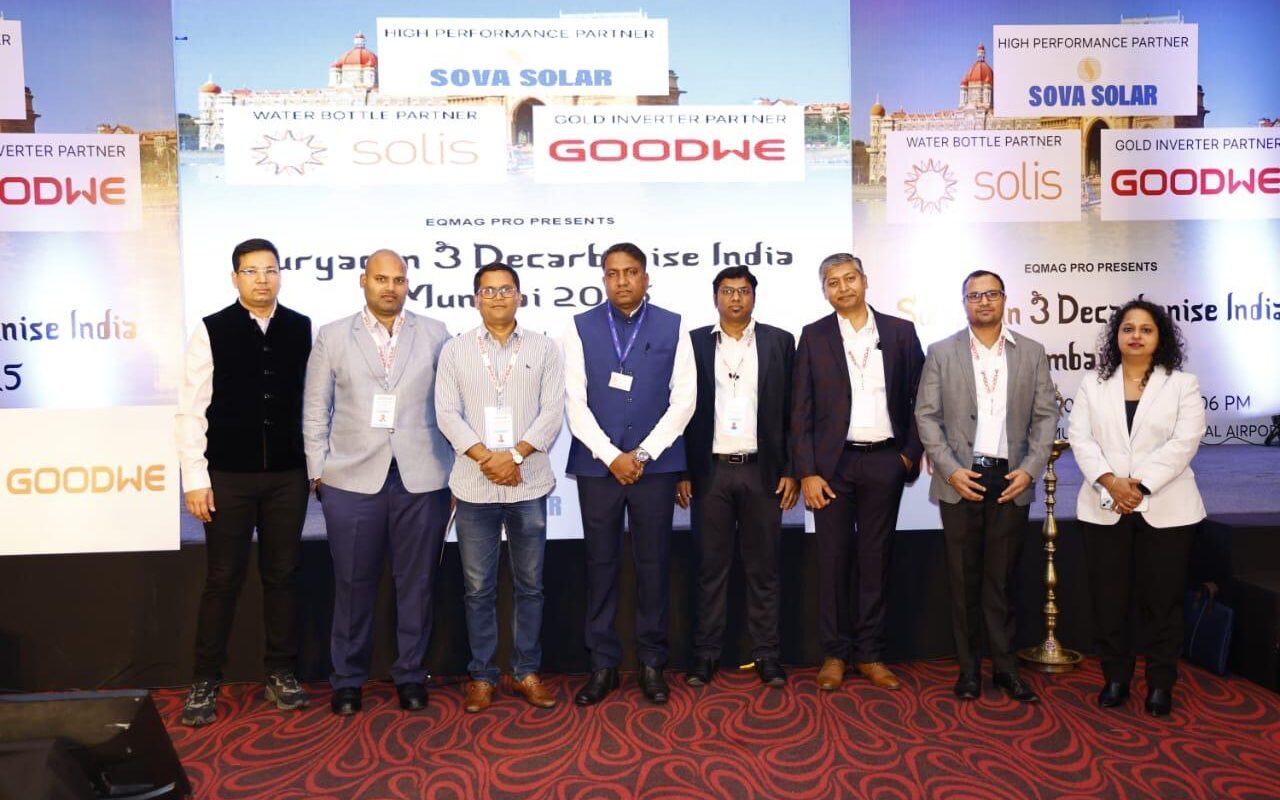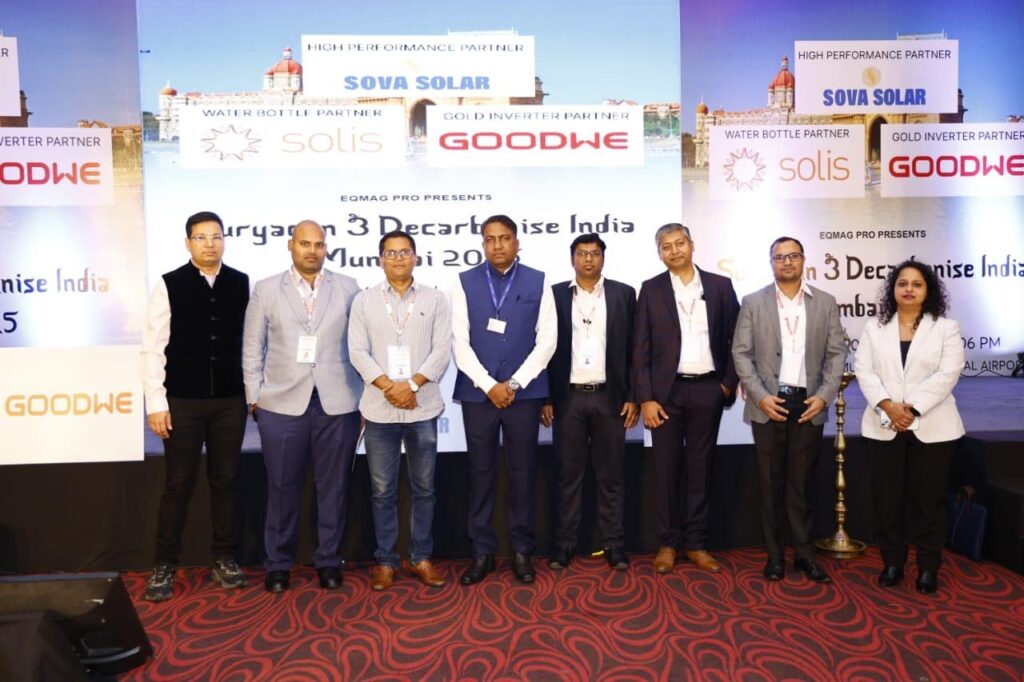Suryacon & Decarbonise India Mumbai 2025 Highlights Opportunities and Challenges in Rooftop Solar Adoption

India is on the cusp of a renewable energy revolution, with solar power expected to account for 60% of the nation’s renewable energy capacity by 2030.
by Prashant Kapadia/NHN
Mumbai, 10th January 2025 — Suryacon & Decarbonise India Mumbai 2025, held in the bustling financial hub of Mumbai on January 10, emerged as a landmark event propelling India’s journey towards decarbonisation, renewable energy adoption, and sustainable growth. The transformative potential of rooftop solar installations was a central theme at the Suryacon & Decarbonise India Mumbai 2025 event, where industry experts, policymakers, and business leaders gathered to discuss India’s decarbonisation goals. While significant progress has been made, experts highlighted key challenges that must be addressed to unlock the full potential of rooftop solar energy.
During the event were present Mr. Prabir Chakraborty, Senior Sales Manager, Sova Solar; Mr. Idrish Khan, CTO – India, Solis; and Mr. Anand Darakh, Regional Sales Head, GoodWe India, and Dr Aditi Mishal, AGM- Environmental, social Governance, Welspun Enterprises shared their insights on India’s rooftop solar future. The event was also graced by entrepreneurs and key decision-makers, facilitating meaningful discussions on challenges and innovative solutions for scaling solar adoption.

India has made remarkable strides in solar energy, which has become the cornerstone of its renewable energy revolution. As of December 2024, India’s installed solar energy capacity stands at an impressive 70 GW, accounting for over 38% of the country’s total renewable energy capacity. The government’s National Solar Mission has set ambitious targets to achieve 280 GW of solar power by 2030, reflecting the nation’s commitment to clean energy.
India’s rooftop solar capacity has grown steadily, reaching 13 GW in 2024, but it still falls short of the national target of 40 GW by 2025. This was attributed to challenges ranging from financing hurdles to regulatory barriers and awareness gaps, as discussed during the event’s panel sessions.
Mr. Anand Gupta Director EQ International, emphasized the need for stronger policy alignment and public-private partnerships “Rooftop solar holds immense promise for India’s energy transition. However, issues such as fragmented regulations and the lack of uniformity in net metering policies across states slow down adoption. We need a streamlined approach to unlock its true potential.
“Mr. Prabir Chakraborty, Senior Sales Manager, Sova Solar said “Affordable rooftop solar solutions are vital for India’s decarbonisation. By addressing challenges like financing and awareness, we can empower individuals and businesses to adopt solar energy and contribute to a sustainable future.
“Mr. Idrish Khan, CTO – India, Solis added “Technology and innovation are key to overcoming rooftop solar adoption challenges. By integrating advanced inverters and storage solutions, we can enhance grid stability and ensure a seamless energy transition for consumers. Advanced inverter technologies and energy storage systems can mitigate grid stability issues. However, the industry must work together to ensure affordability and scalability of such solutions
“Mr. Anand Darakh, Regional Sales Head, GoodWe India said “Rooftop solar is more than a clean energy solution; it’s an investment in energy independence. Simplifying installation processes and increasing consumer education will play a significant role in scaling adoption across India. One of the major challenges identified was financing for residential and small commercial installations. While government subsidies have helped, many households and small businesses still struggle to access affordable loans for upfront costs. Financing models need to evolve to make rooftop solar accessible to all segments of society. Innovative solutions like pay-as-you-go models and third-party ownership can drive adoption, especially in underserved areas.
“Technological integration and grid management were also discussed as critical hurdles. Experts pointed out that while rooftop solar enhances energy independence, the variability in solar power generation can strain existing grid infrastructure.
The event also shed light on the importance of raising public awareness about rooftop solar benefits and simplifying the installation process. Many potential users remain unaware of government incentives and the long-term savings of adopting solar energy. Despite these challenges, the discussions at Suryacon reflected optimism about the future of rooftop solar. The event concluded with a call to action for all stakeholders to collaborate and innovate in tackling these barriers, ensuring that rooftop solar continues to drive India’s decarbonisation journey.